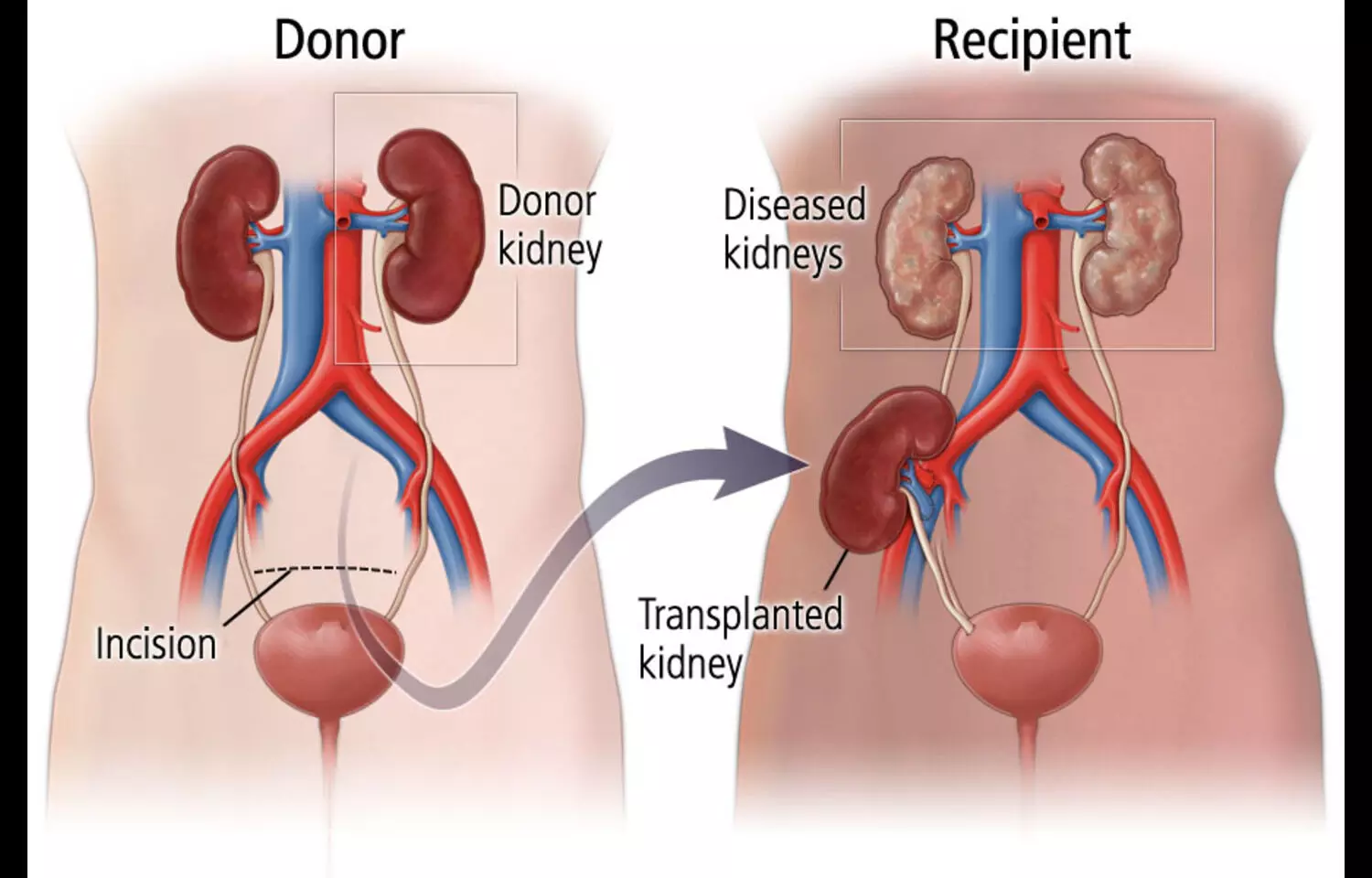Steroidal MRAs Ineffective and Risky in Kidney Transplant Recipients: Study
- byDoctor News Daily Team
- 10 September, 2025
- 0 Comments
- 0 Mins

Researchers have found in a new study steroidal mineralocorticoid receptor antagonists (MRAs) show no superior efficacy over placebo in kidney transplant recipients and are linked to a fourfold increased risk of hyperkalemia, even with preserved kidney function. In patients with chronic kidney disease, mineralocorticoid receptor antagonists (MRAs) exert a reno-protective effect through its anti-inflammatory and antifibrotic effects. Less is known about the efficacy of MRAs in kidney transplant (KT) recipients. This meta-analysis aims to systematically assess the efficacy of MRAs in KT recipients. PubMed, Embase and Cochrane databases were searched for randomized controlled trials (RCTs) that compared MRAs to placebo in KT recipients and reported the outcomes of (1) glomerular filtration rate (GFR); (2) serum creatinine; (3) systolic (SBP) and diastolic blood pressure (DBP); (4) hyperkalemia; and (5) interstitial fibrosis and tubular atrophy (IFTA) scores. Heterogeneity was examined with I2 statistics. A random-effects model was used for outcomes with high heterogeneity. Results: They included 5 RCTs with 293 patients, of whom 142 (48.5%) underwent treatment with a steroidal MRA. Mean follow-up ranged from 5 days to 36 months. There was no significant difference in GFR (MD 9.04 mL/min/1.73 m2; 95% CI − 2.76–20.85; p = 0.13) and serum creatinine between placebo and MRA groups (MD − 0.21 mg/dL; 95% CI − 0.62–0.20; p = 0.32). SBP (MD 0.69 mmHg; 95% CI − 0.69–2.08; p = 0.33), DBP (MD 0.45 mmHg; 95% CI − 0.69–1.59; p = 0.44) and IFTA scores exhibited no differences between groups (mild IFTA RR 1.21; 95% 0.83–1.74; p = 0.32) (moderate IFTA RR 0.82; 95% CI 0.45–1.50; P = 0.51) (severe IFTA RR 0.64; 95% CI 0.24–1.76; p = 0.39). MRAs were associated with a 4-fold increase in the risk of hyperkalemia compared with placebo (RR 4.06; 95% CI 1.46–11.28; p = 0.007). Steroidal MRAs have no superior efficacy compared with placebo in KT recipients and are associated with a 4-fold increase in the risk of hyperkalemia despite preserved kidney function. Keywords:steroidal mineralocorticoid receptor antagonists, MRAs, kidney transplant, hyperkalemia, efficacy, safety, nephrology
Disclaimer: This website is designed for healthcare professionals and serves solely for informational purposes.
The content provided should not be interpreted as medical advice, diagnosis, treatment recommendations, prescriptions, or endorsements of specific medical practices. It is not a replacement for professional medical consultation or the expertise of a licensed healthcare provider.
Given the ever-evolving nature of medical science, we strive to keep our information accurate and up to date. However, we do not guarantee the completeness or accuracy of the content.
If you come across any inconsistencies, please reach out to us at
admin@doctornewsdaily.com.
We do not support or endorse medical opinions, treatments, or recommendations that contradict the advice of qualified healthcare professionals.
By using this website, you agree to our
Terms of Use,
Privacy Policy, and
Advertisement Policy.
For further details, please review our
Full Disclaimer.
Recent News
Ketogenic diet may protect against stress experien...
- 03 November, 2025
STORM-PE Trial: Mechanical Thrombectomy Shows Supe...
- 03 November, 2025
AIIMS INI CET January 2026 admit cards released
- 03 November, 2025
3 pharma students drown in Payyambalam beach in Ke...
- 03 November, 2025
Daily Newsletter
Get all the top stories from Blogs to keep track.


0 Comments
Post a comment
No comments yet. Be the first to comment!